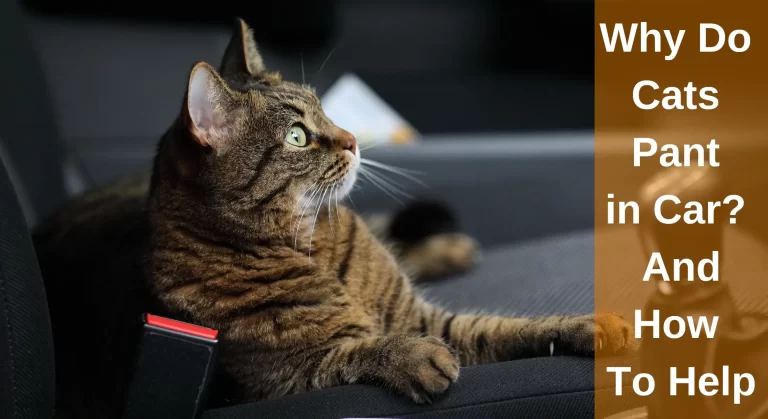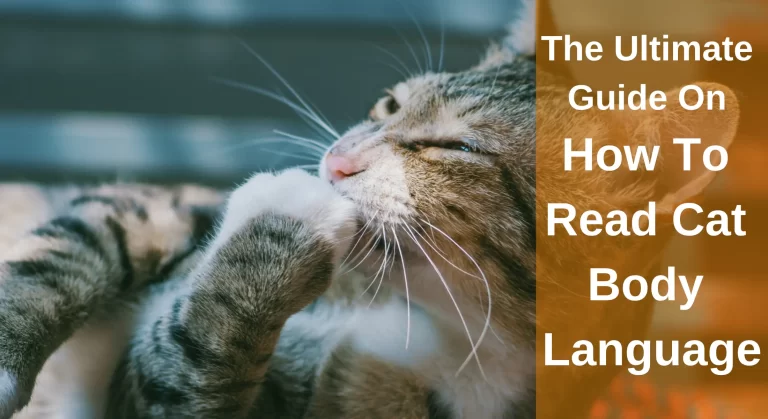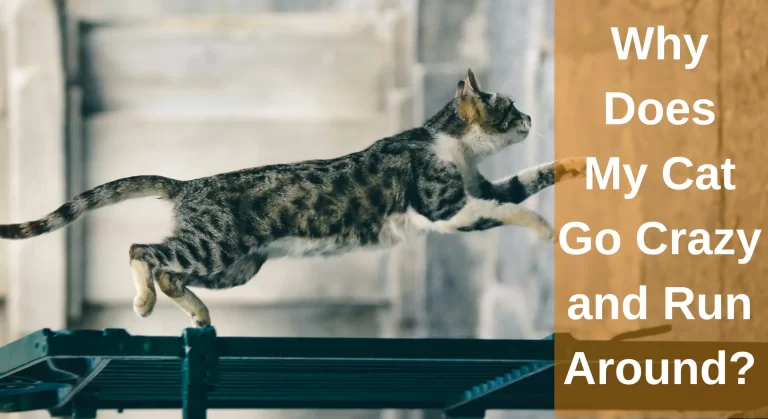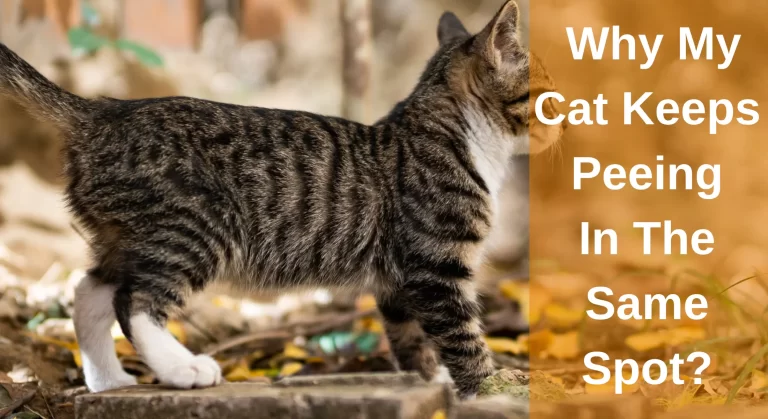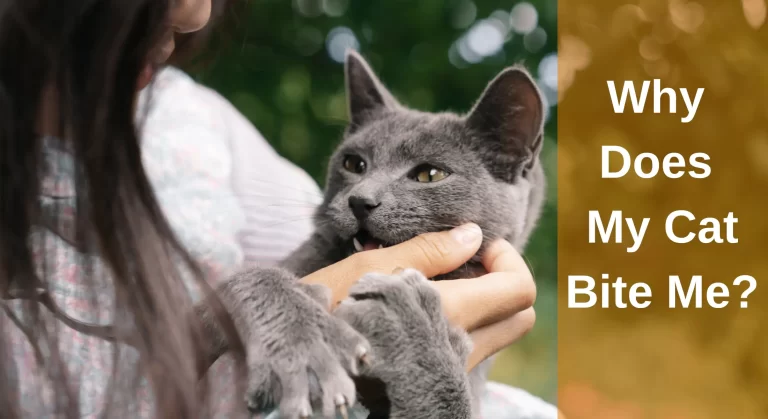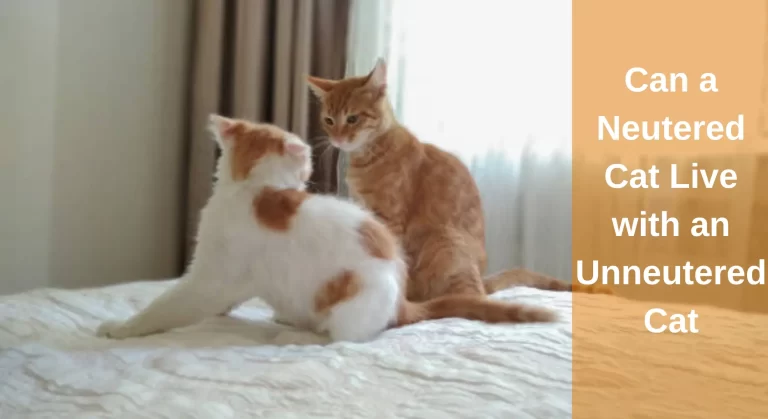Why Do Cats Rub Their Faces On Things? Head Bunting
You may observe your cat rubbing his face against objects around the house. This activity may confuse you and insist you wonder why do cats rub their faces on things. Does it have any deeper meaning, or is it only pleasant to them? Then you are not alone; most new parents may not understand the exact reason behind this cat’s behaviour.
A cat rubs its face on something for several reasons, depending on the context or object.
This activity of cats is known as bunting or head stroking. Cats have scent glands around their cheeks, chins, ears, mouths, and tail bases. A scent gland contains pheromones that can be released when they rub their faces against stuff, leaving a scent mark indicating various messages.
Cats enjoy bunting at things that look different, while male felines enjoy bunting females. This behaviour is developed in cats because, in some parts of their life, they used to live in the wild, where they conveyed messages to each other via this action.
Let’s dig into more details. I’ve come up with this interesting article that will let you know the reasons behind your cat’s bunting. After reading this article, you can understand your feline well and also respond to their actions. So, let’s explore these reasons:
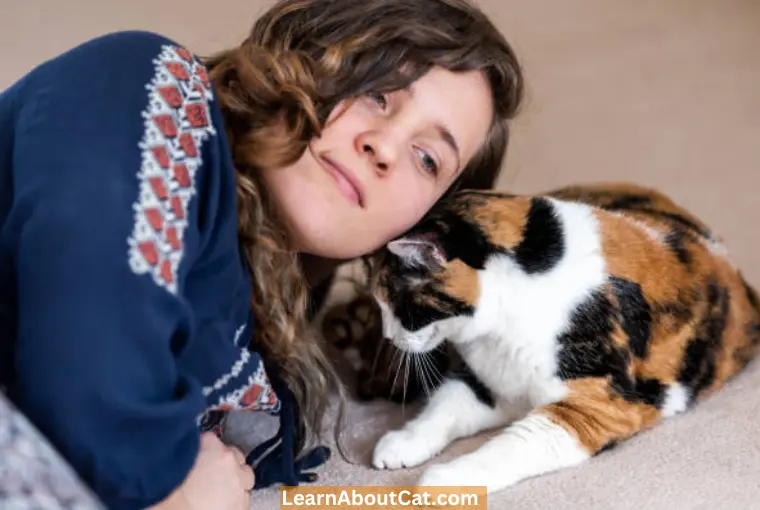
Reasons Why Do Cats Rub Their Face on Things?
The reasons for rubbing a cat’s face vary depending on the context and the object. Some of the reasons are given below:
1. Scent Sharing
Cats have many scent glands all over their body, just like other animals. Cats have scent glands on their neck and ears as well as on their chins and cheeks also. They have glands on their lips, chins, sides of the face, neck, and ears. A cat’s aroma is left behind when he touches anything with his face. Bunting is the term for cats who rub their heads against things.
The area of the cat’s head he uses to leave a smell impression depends on the height of the item. Cats also find the corners of books and boxes, as well as the edges of couches and coffee tables, to be appealing. More frequently than female cats, male cats like bunting objects.
2. Marking Territory – Timestamp
Your cat is notifying other cats in the area of its presence by bunting objects. The next cat will be able to determine how long the scent mark has been there once the previous cat leaves the scent mark.
If the mark is still quite new, they might wish to leave right once to avoid quarrels. Some cats may bunt if they’re anxious.
They might spread their scent around an unfamiliar environment to make themselves feel more comfortable.
3. They are Learning Something New
If a strange cat comes and starts rubbing up against you, it’s typically not the cat’s aim for you to pet it. Probably trying to learn something, the cat. It turns out that by doing this, cats can actually identify if you have pets and where you’re from.
A cat may also pick up scents by rubbing against objects. Cats mark their own scents during bunting and pick up their owners’ scents.
4. They are Requesting You Focus
They also participate in this action to get attention. Depending on their innate traits, your cat may be mildly or extremely needy. For this reason, they commonly use bunting to ask for caressing, scratching, or even food.
It is possible that your cat may learn that bunting you every time is a good way to get your attention, and when it does, it means that you should pet him or play with him every time.
Also Read: Why Do Cats Rub Their Teeth On You?
5. They are Expressing Their Affection
A cat that rubs its face on a human may also be expressing affection or greeting.
If you’ve ever seen any cat-related internet memes, you’re familiar with “head boops.” Cats will reach up and bunt their favourite people on the top when it happens. This is known as “allorubbing” in technical terms.
Your hands, legs, and pretty much any other portion of your body that they think acceptable are subjected to this. Because they are expressing their passion and love.
Feline social behaviour is believed to be influenced by the pheromones deposited on their heads when they rub their heads
6. They Experience Anxiety
Some cats may bunt when they’re stressed. When cats feel stressed, they bunt more often to feel safe and more comfortable.
You will see other symptoms if your cat is stressed, including excessive bunting.
Other symptoms of anxiety in cats include:
- Excessive grooming
- Aggressive behaviour
- Hiding
- Attempting to flee.
You can help your cat relax and feel more comfortable by removing the stressor.
7. Looking for a Mate
Cats that are sexually intact will rub their faces against things to signal their desire to mate. Female cats tend to leave scent marks around to entice male cats in the area.
During a mating season, males are more attracted to female bunt marks, which indicates the female’s scent has changed to attract male attention.
What is Cat Head Bunting?
Watching your cat lovingly massage its cheeks, whether you name it bunting, boops, or head butts, is very sweet. Being the recipient of those delicious massages is also oh-so-comforting. It’s a knowledge that cats love to bunt for a variety of reasons, including checking the time, tracking their smell, and expressing affection or need. We adore them for that reason.
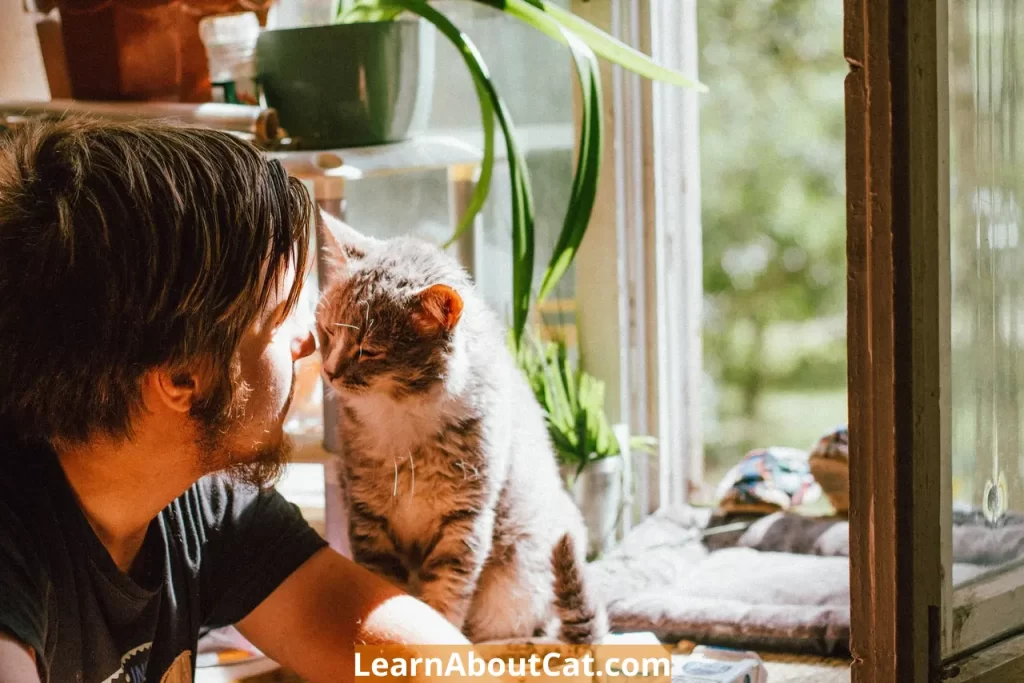
Whatever name we give it is undeniably a stunning manifestation of faith and love. For many of us, our cat will come up to us and gently touch our forehead and face while purring intensely. They would even occasionally rub our faces from cheek to chin. Others believe that head bunting is more equivalent to a skull-punch than anything else. It’s a well-known fact that we are respected cat family members in either scenario.
How Should I Respond to Head Bunting?
Undoubtedly, a response is needed from your feline. When we’re ready, we may experiment with reciprocating in a variety of ways. One of the early reactions can be a little bit of scratching. If they respond positively or appear to value it, this could be what they’re looking for.
Wait till they get closer later and attempt a new response if they depart or cease being affectionate. Giving treats can be the best option.
What if My Cat Doesn’t Headbutt Me?
It would seem strange for someone not to head bunt. However, there is nothing to worry about. Every kitten is different, and cats may communicate in a wide range of ways.
Although head bunting is popular for cats to communicate friendliness and trust, it is okay if your cat doesn’t do it. It just suggests that they have different ways of showing their affection.
Keep a watch out for cats who groom or lick us or that bring us gifts like rodents, toys, or insects.
Many cat owners fail to see that when cats greet us at the door when we return home, they demonstrate their love and trust for us.
Having an upright tail, kneading, and even simply being close by and sharing space are all ways to strengthen bonds.
Since cat love is usually subdued, the trick is to observe and decipher what our cats are actually attempting to tell us.
Why Is My Cat Scratching Everything And Purring?
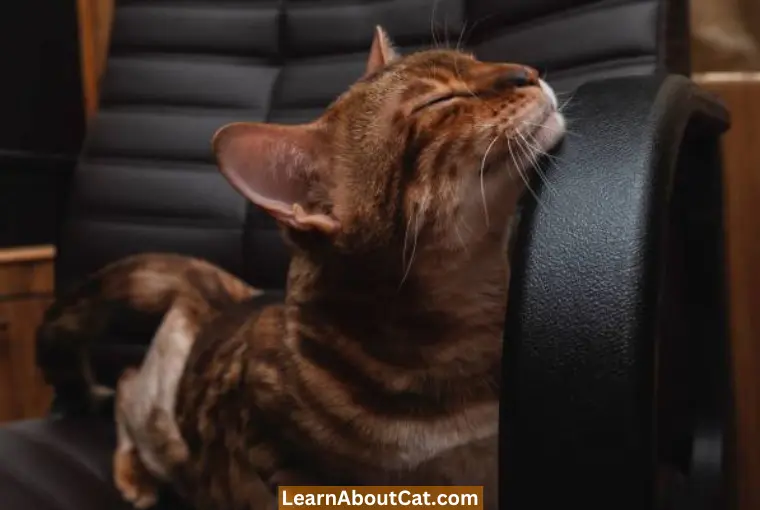
1. They are Heat
The most likely cause of a female cat acting strangely if she hasn’t been neutered is that she’s going into heat and trying to breed. Here is more information about the heat cycle, including the causes of cats meowing and brushing against objects and what you should do.
2. Ranking and Social Ties
Cats differentiate among themselves and among their feline kin by bunting their heads. With this more powerful marking than simply urinating on items to signify their dominion, they are claiming familial ties rather than territory. It turns out that the social structure of head bunting extends beyond simple displays of affection and appreciation.
Head Bunting
A more dominant cat with a better social status will be the first to begin head bunting. The dominant, confident cat’s duty is to groom the other cats and spread the family odour (and sometimes humans). This serves as a strengthening activity and a sign of inclusion and faith. Domestic and wild cats share this characteristic.
Check Out: How to Stop Cats from Scratching Leather Furniture?
Frequently Asked Questions
What distinguishes head pressing from head butting?
Head butting is frequently used to express affection and happiness toward a human or another animal. Head butting and face rubbing are typically associated with purring and other happy body language displays.
Cats are referred to as “head pressing” when they press their heads against walls or other hard things. In contrast to when cats rub their heads on you to show affection, head pressing happens suddenly and may signify a serious health issue.
Why is my cat meowing and rubbing up to me?
1. They show their affection.
2. They trust you. They want to tell you, “I love you” or “I miss you”.
3. He or she wants your attention. Your feline may feel hungry.
4. Showing territorial behaviour.
Do cats rub their face on things when happy?
It is most often seen as a display of affection by owners, and they are happy to see this behaviour. The scent of a cat is transferred when a cat rubs against an object. Their actions are almost like claiming ownership and making us one of their possessions.
Wrap Up!
Most frequently, cats rub their faces against objects, which might mean a number of different things. Their primary intent is to leave their smell in their trail, but it may also send a variety of other messages. Your cat could be presenting itself, adopting you as your own, learning details about a stranger, letting other cats know it’s there, or communicating something quite different. Now that you know what your cat is trying to say, at least you can comprehend it.
Related Posts:
Who is Isabella?
My name is Isabella, and I am a dedicated and knowledgeable cat enthusiast. With years of experience caring for cats and a deep love for felines, I made a mission to help other cat lovers navigate the challenges of cat ownership.

